Finding a job in Canada as a foreign worker can be tough. But, with the right plan, getting LMIA jobs is doable. The Labour Market Impact Assessment (LMIA) helps skilled workers find great jobs in Canada.
The Canadian government has made things easier. Now, getting a job is faster and more open. If you’re into tech, healthcare, or other in-demand fields, finding a job in Canada is easier.
This guide will show you how to find LMIA jobs quickly, even if you’re not in Canada. We’ll explain the steps, point out key job opportunities, and give tips to improve your job search.
Key Takeaways
- Understand the LMIA process and its significance for foreign workers
- Leverage new Canadian immigration streams targeting skilled professionals
- Explore high-demand sectors with robust job opportunities
- Prepare targeted applications that meet Canadian employer requirements
- Utilize government resources and job search platforms effectively
Understanding LMIA and Its Importance for Job Seekers
Looking for jobs in Canada? You need to know about the Labour Market Impact Assessment (LMIA). It’s a key part of the temporary foreign worker program. This program lets Canadian employers hire skilled workers from abroad when they can’t find locals.
What is LMIA?
An LMIA is a document from Employment and Social Development Canada. It shows an employer really needs to hire a foreign worker. Employers must prove they can’t find a Canadian or permanent resident for the job.
- Confirms genuine labour shortage in specific roles
- Provides legal framework for hiring international workers
- Protects both Canadian job market and foreign workers’ interests
Why is LMIA Required?
The LMIA makes sure hiring foreign workers doesn’t hurt the Canadian job market. Employers must show they’ve tried hard to find a Canadian for the job. They must explain why they need an international worker.
The Benefits of LMIA Jobs
Getting a job with an LMIA has big benefits for international job seekers. These jobs can lead to permanent residency, good pay, and legal work in Canada.
| LMIA Job Benefit | Description |
|---|---|
| Work Permit | Legal authorization to work in Canada |
| Wage Standards | Guaranteed fair compensation |
| Permanent Residency | Potential immigration pathway |
Understanding the LMIA is key to finding good jobs in Canada. It helps you succeed in the temporary foreign worker program.
Eligibility Criteria for LMIA Jobs
Entering the Canadian job market as a foreign worker has its rules. The Labour Market Impact Assessment (LMIA) sets clear guidelines. It makes sure employers and job seekers meet important standards.
To qualify for LMIA jobs, you need to check your professional background. You must meet several key standards:
- Possess relevant educational credentials
- Demonstrate substantial work experience in the specified field
- Meet specific skill requirements for the position
- Provide proof of language proficiency
Assessing Your Qualifications
Canadian employers look for specific qualifications in foreign workers. Your eligibility depends on several critical factors:
| Qualification Category | Key Requirements |
|---|---|
| Education | Verified academic credentials recognized in Canada |
| Work Experience | Minimum 2-3 years of relevant professional experience |
| Skill Level | Matches National Occupational Classification (NOC) standards |
Language Proficiency Requirements
Language skills are key for foreign worker recruitment in Canada. Most jobs require English or French proficiency. You’ll need to show your language skills with test results.
- IELTS (English) or TEF (French) test scores
- Minimum required language levels for professional communication
- Ability to work effectively in a Canadian workplace environment
Knowing these eligibility criteria boosts your chances of getting LMIA jobs. Review each requirement carefully to increase your employment chances.
How to Search for LMIA Jobs Efficiently
Finding LMIA-approved jobs in Canada needs a smart plan. Knowing the best ways to search for work permits is key.
The lmia process Canada has many ways to look for jobs. Knowing where and how to search can really help you find the right job.
Utilizing Job Boards and Websites
Job search platforms are essential for finding LMIA jobs. Here are some top sites:
- Job Bank: A government-run platform with free services
- LinkedIn: Professional networking site with lots of job listings
- indeed Canada: A wide job search website
- Workopolis: Focuses on Canadian job opportunities
Use these features to your advantage:
- Advanced search filters
- Job alerts
- Customizing your resume for each job
Networking and Professional Connections
Building professional networks can reveal hidden job chances. Sites like LinkedIn help connect with Canadian employers who need LMIA workers.
Here’s how to network well:
- Joining groups related to your field
- Going to virtual job fairs
- Connecting with Canadian professionals in your field
Engaging with Recruitment Agencies
Recruitment agencies help match workers with employers who need LMIA permits. They know the process well and can offer great advice.
When using agencies, focus on:
- Choosing agencies that know your industry
- Having a detailed professional portfolio
- Keeping in touch regularly
Remember, being persistent and strategic is important. This way, you can find LMIA-approved jobs that fit your career goals.
The Application Process Explained
Getting a job in Canada through the LMIA requires careful planning. Knowing how to apply for immigration jobs can really help you succeed.
Crafting a Compelling Application Package
When applying for LMIA jobs, you need to prepare well. Employers want to see how you fit their needs. A good application includes:
- A targeted resume highlighting relevant skills
- A professional cover letter addressing job-specific criteria
- Documentation proving your qualifications
- Evidence of language proficiency
Application Submission Strategy
Applying for immigration jobs in Canada involves several steps. Keep in mind the processing times to plan better:
| LMIA Stream | Average Processing Time |
|---|---|
| Global Talent Stream | 9 business days |
| High-wage Stream | 53 business days |
| Low-wage Stream | 51 business days |
| Permanent Resident Stream | 100 business days |
Professional Follow-up Techniques
After applying for LMIA jobs in Canada, it’s important to follow up. Showing you’re interested and persistent is key:
- Send a polite email within one week of application
- Request confirmation of application receipt
- Offer additional information if requested
- Maintain a professional and patient approach
The LMIA process usually takes about 4 months. Being patient and strategic in your communication can help you get immigration jobs in Canada.
Tips for Crafting an Effective Resume
Making a great resume is key to getting skilled worker jobs in Canada. It’s your first chance to impress employers looking for workers through Canadian visa jobs. With employers quickly scanning each resume, every detail is important.
For LMIA jobs, your resume needs to show off your strengths and meet employer needs. Canadian employers like clear, focused resumes that show your worth quickly.
Tailoring Your Resume for LMIA Jobs
Here are key tips to make your resume stand out:
- Keep your resume to two pages max
- Use the reverse chronological format, which Canadian employers prefer
- Include 3-5 specific achievements per job
- Use action words like “Achieved,” “Coordinated,” and “Implemented”
- Leave out personal details that could lead to bias
Highlighting Relevant Skills and Experience
When applying for skilled worker jobs, focus on your most relevant experiences. Cut down on jobs older than 15 years and highlight recent, significant roles. Each section should have 5-7 bullet points for easy reading.
Many Canadian companies use Applicant Tracking Systems (ATS). So, make sure your resume is filled with keywords from your industry and the job you’re applying for.
Pro tip: Always check your resume several times. It’s also a good idea to have a professional review it to catch any mistakes that could hurt your chances of getting an interview.
Navigating the Interview Process
Getting ready for an interview in the foreign worker recruitment process needs careful planning. You must understand the labour market impact assessment requirements well. Show your value to Canadian employers and how you can fit into the workplace.
When you’re in an LMIA job interview, focus on several important areas. Employers usually look at:
- Understanding of Canadian work culture
- Long-term career objectives
- Specific skills matching job requirements
- Ability to adapt to workplace dynamics
Common Interview Questions to Expect
Employers ask specific questions to see if you can contribute. Be ready to talk about your professional background, career goals, and how you fit with the company’s needs.
| Question Category | Sample Interview Questions |
|---|---|
| Professional Background | Tell me about your work experience in your field |
| Canadian Work Adaptation | How will you integrate into our workplace culture? |
| Long-term Commitment | What are your career goals in Canada? |
Preparing Effective Responses
Your answers should show clear communication, professionalism, and a real grasp of the foreign worker recruitment process. Practice talking about your skills, your unique value, and your eagerness to join the Canadian labour market.
- Research the company thoroughly
- Prepare concrete examples of your professional achievements
- Understand the specific job requirements
- Practice answering questions confidently
By using these interview strategies, you’ll boost your chances of getting an LMIA-supported job in Canada.
Understanding the Role of Employers in LMIA
Employers have a big role in the temporary foreign worker program. They help international job seekers work in Canada. This is a key part of the LMIA process in Canada.
Canadian employers have important duties in the LMIA process. These duties make sure hiring is fair and open for temporary foreign workers.
Employer Obligations During Hiring
Employers have to follow certain rules when hiring through the temporary foreign worker program:
- Pay a mandatory $1,000 CAD application fee for each LMIA position
- Advertise job positions for a minimum of four weeks
- Use at least three different advertising methods
- Offer wages comparable to Canadian market rates
- Provide fair and safe working conditions
How Employers Support Foreign Workers
Good employers can really help temporary foreign workers. They do this in many ways:
- Help with work permit applications
- Provide orientation about Canadian workplace culture
- Offer language and skill development resources
- Facilitate settlement support in local communities
Knowing about the LMIA process in Canada shows job seekers the support they get. This support helps them fit well into the Canadian workforce.
The Impact of COVID-19 on LMIA Jobs
The COVID-19 pandemic changed the job market in Canada a lot. It brought new challenges and chances for people looking for work. Employers had to change how they hire to keep everyone safe and work smoothly.
Shifting Hiring Landscapes
Remote work is now key for many Canadian employers. They use online tools to find and hire workers. This includes virtual interviews and online training.
- Virtual job interviews replaced in-person meetings
- Digital skills became increasingly valuable
- Flexible work arrangements expanded
Emerging Remote Work Opportunities
The pandemic made remote work even more popular. It opened new ways for international to find jobs in Canada. Many companies now look for talent from around the world without needing them to move.
| Work Permit Category | Remote Work Potencial |
|---|---|
| LMIA-Dependent Positions | Moderate Flexibility |
| LMIA-Exempt Positions | High Flexibility |
| Tech and Digital Roles | Maximum Flexibility |
Knowing about these changes can help you plan your job search in Canada better. It can help you find the best opportunities in the job market after the pandemic.
Financial Considerations for Job Seekers
When you’re planning to move to Canada for work, it’s important to understand the money side. Canada has great job opportunities, but you need to know the financial details to succeed.
There are several key financial steps to take before moving. Knowing how much things cost and what you can earn will guide your decision.
Cost of Living Across Canadian Regions
The cost of living changes a lot depending on where you are in Canada. Here’s a look at what you might spend each month:
- Toronto: Highest living costs, around $4,000-$5,000 per month
- Vancouver: Similar to Toronto, approximately $3,800-$4,500 monthly
- Montreal: More affordable, ranging from $2,800-$3,500 monthly
- Calgary: Moderate expenses, about $3,200-$4,000 per month
Salary Expectations for LMIA Jobs
How much you can earn in Canada depends on your job and skills. The Global Talent Stream offers fast work permits and good pay for skilled workers.
| Industry | Entry-Level Salary | Mid-Level Salary | Senior-Level Salary |
|---|---|---|---|
| Information Technology | $60,000-$75,000 | $80,000-$110,000 | $120,000-$150,000 |
| Engineering | $55,000-$70,000 | $75,000-$100,000 | $110,000-$140,000 |
| Healthcare | $50,000-$65,000 | $70,000-$90,000 | $100,000-$130,000 |
When looking for jobs in Canada, think about more than just salary. Consider moving costs, initial expenses, and taxes. Good planning will make your move to Canada easier.
Resources and Tools for Job Seekers

Finding a job in Canada needs the right tools and resources. Success in the job market depends on using the best platforms and networks for foreign workers.
Finding the right resources can greatly improve your job search in Canada. Many job search platforms can connect you with employers:
- indeed: Hosting over 150 million resumes globally
- SimplyHired: Job listings from 700,000 unique employers
- Eluta: Features job postings from 10,000 Canadian employer websites
- ZipRecruiter: Affordable job listing platform
Government Websites and Services
The Canadian government helps job seekers a lot. Immigration websites offer detailed guidance on work permits, visa applications, and job opportunities in different sectors.
Community Support and Networks
Networking is key in finding a job. Local settlement services provide free language training and networking chances. Volunteering can help you get Canadian work experience, practice language, and make professional contacts.
Many jobs in Canada aren’t advertised. Building personal connections and understanding workplace culture can really help your job search for canadian visa jobs.
Conclusion: Your Path to Securing an LMIA Job in Canada
Finding LMIA jobs in Canada needs careful planning and hard work. The Labour Market Impact Assessment (LMIA) is a clear path for international workers. By knowing how to apply for an LMIA, you can improve your chances of getting a job in Canada.
Looking for LMIA jobs in Canada requires a detailed plan. You must research employers, make your resume fit Canadian standards, and show how your skills meet labour needs. It’s important to highlight your professional value and how you fit into Canada’s workforce.
Key Strategic Steps
Keep improving and network wisely. Update your professional documents, improve your language skills, and use Canadian job sites. Each LMIA application is a chance to show your skills and how you can help Canada’s workforce.
Moving Forward
Understanding the LMIA process is key. Keep up with labour market trends, build professional connections, and be patient. With hard work and planning, you can make your dream of working in Canada a reality.
FAQ
What is an LMIA and why is it important for foreign workers?
Who is eligible to apply for LMIA jobs in Canada?
How long does the LMIA process typically take?
What are the most common industries for LMIA jobs?
Do I need a job offer before applying for an LMIA?
How much does an LMIA application cost?
FAQ
What is an LMIA and why is it important for foreign workers?
A Labour Market Impact Assessment (LMIA) is a document Canadian employers need to hire foreign workers. It shows that hiring a foreign worker won’t hurt Canadian job chances. Getting an approved LMIA is key for a Canadian work permit.
Who is eligible to apply for LMIA jobs in Canada?
To apply for LMIA jobs, you need certain qualifications. These include education, work experience, and language skills. Skilled workers with post-secondary education and strong language skills have better chances.
How long does the LMIA process typically take?
The LMIA process time varies. It’s usually 2 to 12 weeks. This depends on the job type, application complexity, and current ESDC volumes. Some jobs might process faster.
What are the most common industries for LMIA jobs?
Common LMIA job industries include healthcare, technology, and agriculture. Construction, hospitality, and skilled trades also have many LMIA jobs. Jobs in sectors with labour shortages are more common.
Do I need a job offer before applying for an LMIA?
Yes, you need a job offer from a Canadian employer. They must apply for an LMIA for you. Then, you can apply for a work permit.
How much does an LMIA application cost?
The LMIA application fee is CAD
FAQ
What is an LMIA and why is it important for foreign workers?
A Labour Market Impact Assessment (LMIA) is a document Canadian employers need to hire foreign workers. It shows that hiring a foreign worker won’t hurt Canadian job chances. Getting an approved LMIA is key for a Canadian work permit.
Who is eligible to apply for LMIA jobs in Canada?
To apply for LMIA jobs, you need certain qualifications. These include education, work experience, and language skills. Skilled workers with post-secondary education and strong language skills have better chances.
How long does the LMIA process typically take?
The LMIA process time varies. It’s usually 2 to 12 weeks. This depends on the job type, application complexity, and current ESDC volumes. Some jobs might process faster.
What are the most common industries for LMIA jobs?
Common LMIA job industries include healthcare, technology, and agriculture. Construction, hospitality, and skilled trades also have many LMIA jobs. Jobs in sectors with labour shortages are more common.
Do I need a job offer before applying for an LMIA?
Yes, you need a job offer from a Canadian employer. They must apply for an LMIA for you. Then, you can apply for a work permit.
How much does an LMIA application cost?
The LMIA application fee is CAD $1,000 per position. Employers usually pay this fee. Some workers might be exempt under certain conditions.
Can LMIA jobs lead to permanent residency in Canada?
Many LMIA jobs can lead to permanent residency. Programs like the Canadian Experience Class or Provincial Nominee Programs can help. Canadian work experience boosts your chances.
What are the language requirements for LMIA jobs?
LMIA jobs often require English or French skills. You’ll need to pass language tests like IELTS or TEF. The required score varies by job and skill level.
How has COVID-19 impacted LMIA jobs in Canada?
The pandemic has changed LMIA jobs. There’s more focus on remote work and virtual interviews. Some industries need more workers, while others need fewer.
What documents do I need to apply for an LMIA job?
You’ll need a passport, educational documents, and work experience proof. Your employer must also provide specific documents for the LMIA application.
,000 per position. Employers usually pay this fee. Some workers might be exempt under certain conditions.
Can LMIA jobs lead to permanent residency in Canada?
Many LMIA jobs can lead to permanent residency. Programs like the Canadian Experience Class or Provincial Nominee Programs can help. Canadian work experience boosts your chances.
What are the language requirements for LMIA jobs?
LMIA jobs often require English or French skills. You’ll need to pass language tests like IELTS or TEF. The required score varies by job and skill level.
How has COVID-19 impacted LMIA jobs in Canada?
The pandemic has changed LMIA jobs. There’s more focus on remote work and virtual interviews. Some industries need more workers, while others need fewer.
What documents do I need to apply for an LMIA job?
You’ll need a passport, educational documents, and work experience proof. Your employer must also provide specific documents for the LMIA application.





